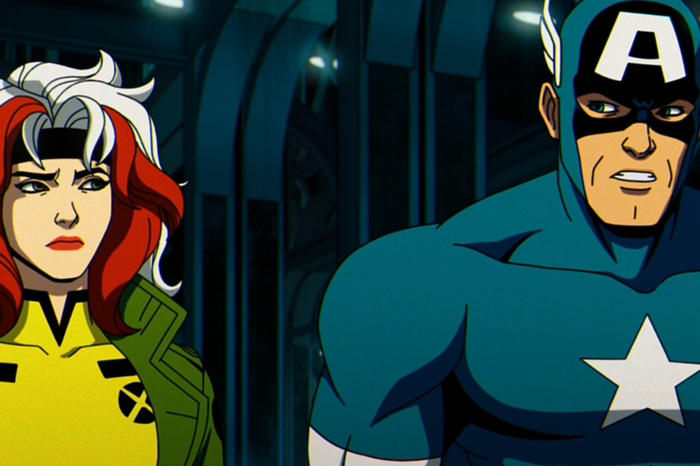X-Men ’97 Told the Avengers They Suck


Spoilers follow for X-Men ’97 season one, including the finale, “Tolerance Is Extinction, Part 3.”
Over its first ten episodes, X-Men ’97 validated our nostalgia, broke our hearts by killing off beloved bayou boy Gambit, and gave us many opportunities to nod sagely and say “Well, Magneto’s right.” This is a series about mutants and mutant issues, about the ideological divide between Charles Xavier’s optimistic insistence on love and acceptance and Holocaust survivor Magneto’s understandable need for vengeance, and X-Men ’97 honors its predecessor series and the comics that inspired them by engaging with that conflict from various angles. One of the best ways it does this — the one that made me laugh with the chaotic glee of tyrannical video-game mogul Mojo and the devilish mirth of owl-shaped demon the Adversary — is by telling the Avengers they ain’t shit.
Marvel Studios’ acquiring rights to the X-Men when Disney bought 20th Century Fox, along with the ongoing deal between Marvel and Sony to share Spider-Man, has functionally made fan service easier — it allowed Spider-Man: No Way Home to feature cameos from the previous actors who had played Peter Parker outside of the MCU, and Ms. Marvel to end with the retcon reveal that Kamala Khan is a mutant, a characterization only lightly explored in The Marvels. The goal here was that all the characters who mingle in Marvel Comics and whom fans love seeing together on the page could unite onscreen in the equivalent of a big-tent party, the superhero monoculture swelling ever larger and absorbing every entity in its path. But X-Men ’97 turns that fan-service formula on its head by presenting Captain America and Iron Man as failing to act in a clear situation of right and wrong and shirking the heroism they’re supposed to represent. There’s a beautiful irony in X-Men ’97 taking the MCU’s more-more-more mentality and using it to undermine the Avengers’ two most recognizable members.
For as dense and plot-stuffed as each episode of X-Men ’97 is, the series is very clear in its presentation of how Magneto’s and Charles’s contrasting perspectives affect the X-Men’s reactions to the massacre of thousands of mutants on the island of Genosha. Season midpoint episodes “Remember It” and “Bright Eyes” are so emotionally devastating because they show characters like Cyclops and Beast — normally coolheaded and empathetic toward humans who feel lonely, left behind, and lost — struggling with feelings of hatred and vengefulness. Hank’s responding to a reporter who “objectively” presents the mutants as untrustworthy with “Begging for your tolerance was our first mistake” is a real banger of a line and a sign of how far X-Men ’97 is willing to push its characters to interrogate what they thought they believed was right. And even when the X-Men do extremist things, like attacking the designers of the murderous Sentinel robots, the series offers them a baseline level of respect for daring to act at all, for realizing something was wrong and reacting to it with strength and vigor. There is very little complacency from the X-Men in the world of X-Men ’97, which treats apathy as a more cowardly act than doing the wrong thing.
Complacency isn’t to be mistaken for forgiveness, a core component of Charles’s teachings on how all people should treat one another after disagreement, dissent, or discord. Amnesty and absolution are active acts. But acquiescing to power? Doing something you know isn’t aligned with your beliefs because you’re more interested in maintaining the status quo than in taking a stand? That kind of inertia is indefensible, and X-Men ’97 is delightfully subversive in presenting the Avengers — the characters who we have been insistently told, over a decade-plus of blockbuster movies, are humanity’s greatest heroes — as government stooges uninterested in going against humankind because doing so would endanger their higher status. They’re straight-and-narrow dorks who come just short of saying “all lives matter” to mutants who saw their island destroyed in a genocidal terrorist attack, and their primary activity in X-Men ’97 is bending the knee.
X-Men ’97 handles the Avengers with a sneering tone and a dismissal of the iconography that defines them. Such rah-rah patriotism is irrelevant in a reality where the U.S. government — hell, nearly all the world’s governments — deny humanitarian aid to an ongoing disaster because it affects the wrong kind of people, and would rather blow those same people off the map. (It is impossible to watch this show and not think of Gaza.) Having lost both her lovers, Gambit and Magneto, in the Genosha attack, Rogue is so transformed by rage and grief that she goes on a rampage to find one of the perpetrators responsible — only to be chastised by Captain America about how her actions “dishonor” the victims. That’s a jarring, condescending introduction for a character who hasn’t done anything to help the X-Men, but Rogue holds her own, disdainfully calling him “America’s top cop” and demanding to know what his team and his uniform stand for if it’s not solidarity with mutants, Americans who actually need the kind of defense he can provide. When she responds to his excuse that “my hands are tied” by whipping his shield into the sky, it’s a neat encapsulation of what his good intentions actually amount to: nothing.
The series reiterates the Avengers’ inefficacy in the season finale when we get a glimpse into President Kelly’s White House war room and see that he ignores both Wakandan King T’Chaka and Captain America, who urge him to exercise caution in dealing with the X-Men and their fight against villain Bastion on Magneto’s space station, Asteroid M. Neither King T’Chaka’s emotional warning that “only history could be conned into forgiving us,” nor Captain America’s practical point that they don’t know much about how Asteroid M functions sways the anti-mutant politician. Instead, he authorizes the Magneto Protocols to blow up Asteroid M and the X-Men on it, a decision Captain America looks conflicted about but doesn’t argue against. And Iron Man? That former weapons developer doesn’t say a word.
X-Men ’97 arrives amid a recent commercial downturn for the MCU: For the first time in nearly 15 years, the summer blockbuster season isn’t being kicked off by one of the studio’s films, and recent TV series Secret Invasion and Echo didn’t catch on with critics or audiences. But X-Men ’97 was produced long enough ago that the series’ criticizing the Avengers doesn’t feel like a reflection of changing business interests. Instead, it feels like the show’s creator and head writer, Beau DeMayo, is channeling a tradition present throughout decades of X-Men comics, in which characters as disparate as Wolverine, Emma Frost, and even Cyclops rail against the Avengers’ self-importance and refusal of aid. In doing so, X-Men ’97 underlines how closeness to power can foster complicity, and how the freedom to do nothing is a uniquely damaging superpower — a message as fundamental to the X-Men franchise as you can get.
X-Men ’97 Told the Avengers They Suck





